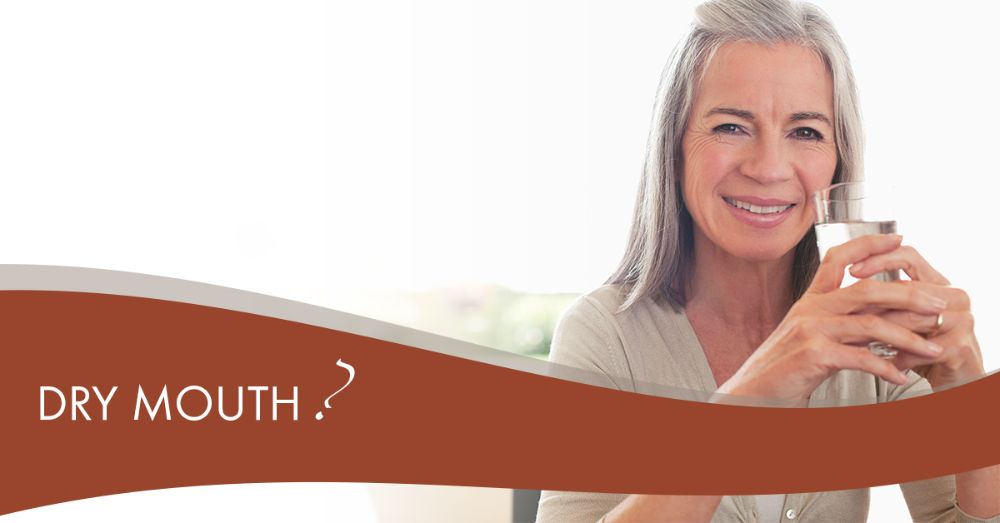We’ve all experienced dry mouth – that feeling that there’s not enough saliva in the mouth, at some point in our lives.
Everyone has dry mouth once in a while. If it’s frequent, however, it can lead to serious dental health problems and tooth loss. Food and bacterial plaque stick to the teeth for longer periods of time causing decay.
There are several factors creating the problem. Salivary glands stop producing as much saliva, which could be caused by low vitamin D and K2 levels. Dry mouth is also created by many heart medications, and allergy and anti-depressants cause a decrease in saliva as well. The use of medications combined with a decrease in dietary minerals leads to severe dental complications.
“Dry mouth is the second biggest cause of tooth loss after age 50,” says Dr. Jill Morris, a cosmetic and integrative dentist who owns World Class Dentistry in Sarasota with her husband, Dr. Burr Bakke.
Saliva is supposed to have natural antibodies and minerals that fight decay. When saliva isn’t present, rampant decay, which usually occurs at the gums and under the gum line, surrounds the neck of the tooth. It is particularly invasive because there is very little enamel protection in these areas, and it is difficult for a dentist to reach and see.
Dr. Morris has seen the effects firsthand during her 30 years in practice. She has seen patients who took excellent care of their teeth for years, suddenly take new medications that cause dry mouth syndrome, who lose their teeth in a few short years. “It’s absolutely devastating,” says Dr. Morris.
So what can you do to combat dry mouth? One key is to keep the minerals and vitamins at a peak level in the body.
If you drink a soda or eat acidic foods such as fruits, candy or tomato sauce, the acid will demineralize the tooth. Processed foods also are high in carbohydrates, which break down as sugars that the bacterial plaque uses to create acid to dissolve tooth structure. The body should naturally put those minerals back into the tooth after a few minutes. The problem is that minerals have been depleted from our soils since WWII, and our foods are deficient in minerals. Americans don’t get the needed minerals.
A vitamin pill, however, may not have the proper balance of minerals that work together synergistically for the body to utilize. Minerals are best taken as a whole food. Dr. Morris recommends a whole food such as Bioage, an algae supplement that the body can absorb.
“Since it’s a whole food, your body completely absorbs it,” says Dr. Morris. “The problem with vitamin pills is that the body doesn’t completely absorb a lot of the pill.”
The idea is to get the salivary glands working again and correcting the proper flow of fluid through the tooth. The fluid should flow from inside the tooth through the tooth, naturally cleaning the tooth and bathing it with minerals.
“This is the natural process the body performs to flush the plaque off the teeth,” says Dr. Morris.
If you’ve been experiencing dry mouth for an extended period of time, it’s important to see your dentist every three months for checkups and cleanings.
Through a series of questions relating to changes in diet, medication and overall health problems, Dr. Morris can usually determine the root cause of the problem.
If the decay hasn’t progressed, Dr. Morris can use ozone gas, oxygen that’s created with a third oxygen molecule, to combat the decay. Ozone kills every bacteria, fungus and virus, but it doesn’t harm human cells, Dr. Morris says.
The ozone gas is placed on the decay to kill the bacteria. Also the ozone creates a zone of tooth structure that is more resistant to decay.
“Ozone is very simple and has become increasingly popular in third world countries as a way to treat cavities,” says Dr. Morris.
In addition to using ozone to help combat dry mouth, Dr. Bakke also uses ozone during surgery to flush the area and kill any bacteria that’s present. Dental hygienists also use ozone water while cleaning teeth, and some of Dr. Morris’ patients use ozone in their water picks, which goes under the gums and helps alleviate gum disease. Ozone has been around since before World War I when nurses would use it to clean soldiers’ wounds.
“There are thousands of research articles on ozone in many fields of medicine,” says Dr. Morris. “Using ozone in the mouth is just the tip of the iceberg.”
A whole food diet, combined with good mineral supplementation and keeping an eye on salivary flow can prevent a lot of pain and suffering of the teeth.

